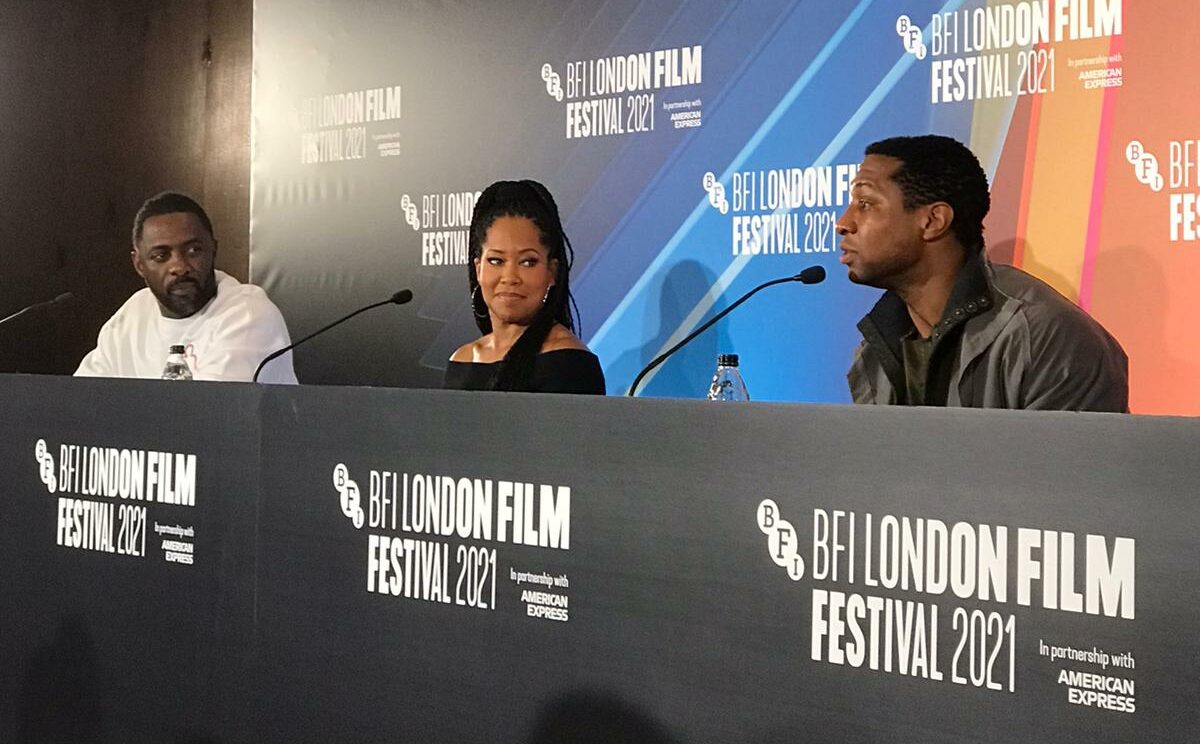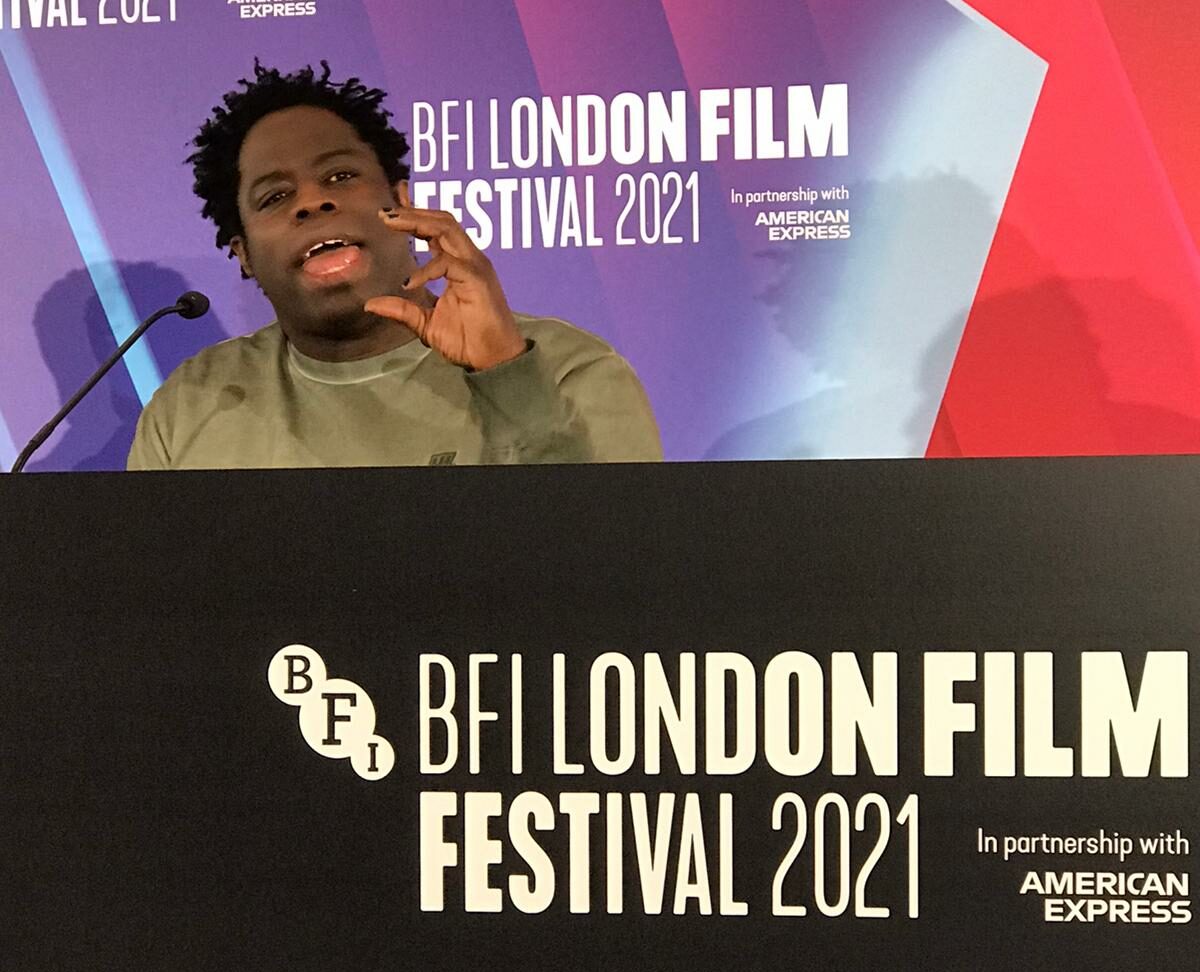Film Review by Khalid Ali, Film and Media Correspondent
‘The Harder They Fall’ (Jeymes Samuel, USA, 2021) opened the BFI London Film Festival (LFF), showing on 7th and 10th October at LFF, and streaming on Netflix from 3rd November 2021.
Black History Month has been observed in the UK every October since 1987. One of the criticisms aimed at the ‘Black History Month’ is that it is limited to academic institutions targeting elite intellectuals in universities, galleries, and museums. In his directorial debut feature film, Jeymes Samuel, British singer, songwriter, and music producer, challenges that notion by revisiting a hitherto unknown chapter of African American history to reach a wider cinematic audience beyond niche academics. Collaborating with an all-black A-list cast, Samuel rewrites the genre of ‘Western films’ in ‘The Harder They Fall’. Nat Love (Jonathan Majors) is a gangster seeking revenge from Rufus Buck (Idris Elba) who killed Nat’s parents when he was 10 years old. Rufus Buck’s gang is a formidable force that includes Trudy Smith (Regina King), and Cherokee Bill (LaKeith Stanfield). Nat Love’s gang is equally fearsome including Mary Fields (Zazie Beetz), Sheriff Bass Reeves (Delroy Lindo), James Beckwourth (RJ Cyler) and Danielle Deadwyler (Cuffee). The rivalry between the two gangs unfolds with a background of haunting landscapes and an original music score co-written by Jeymes Samuel and Shawn Corey Carter (Jay-Z). Childhood trauma, the devastating effects of violence and exploitation in black communities, and women empowerment are some of the compelling themes the film explores.

In the press conference for the London Film Festival (LFF), Jeymes Samuel reminisces about growing up in London loving ‘Western’ films shown on BBC1 and BBC2. As a black kid who loves cinema, he wanted to see his idols on the screen looking like his family members and friends. His first feature is a love letter to cinema, Westerns and his cultural heritage.
Idris Elba and Regina King were attracted by the authenticity of three-dimensional people with shades of good and evil in their respective roles. Elba reflects that his COVID illness during filming was a sobering experience that contributed to him maturing as a human being and as an artist. King was convinced after one face-time call form the director to play Trudy Smith as her role and other women in the film are multi-layered characters, strong women whose stories were not dependent on a parent or a child to assert their status. These women are not subservient to anyone; they are the heroines of their lives and can be as trigger-happy as the cowboy next to them. In a poignant scene, Trudy explains to Mary how her violent tendencies surfaced as a child, when her younger physically-disabled sister was bullied, and how Trudy was beaten almost to death by her father because she did not stand up for her sister, violence breeds violence. A whole range of emotions are portrayed in all characters from vulnerability and compassion to arrogance and criminality.
In the film’s opening credits, it is boldly stated “The events in this film are fictional, but these people existed”. Black Africans were influential players in creating American History; the fictional town ‘Redwood’ that appears in the film is inspired by the Greenwood District in Tulsa, Oklahoma, known as ‘Black Wall Street’. In 1921, Tulsa Race Massacre led by a white mob destroyed the then-thriving businesses and homes of black people. Zazie Beetz’s role is based on ‘Stagecoach Mary’ a black woman who protected stagecoaches in the Wild West, and Delroy Lindo’s character is drawn from Bass Reeves, a law enforcement officer who was the first black deputy U.S. marshal west of the Mississippi River.
While the characters are all black, James Lassiter, the film producer, argues that he views the film differently as a human story of retribution and healing, a universal story that connects with people from different ethnic backgrounds and cultures. Choosing Netflix as a viewing platform ensures that the film will reach a wide international audience.

Jonathan Majors comments on his approach to portraying Nat Love: “the clue to understanding the driving force behind Nat’s quest for revenge lies in his traumatic past. “Heal the Boy, Save the Man” is an apt statement to describe the spiritual journey that Nat undertakes. He is a troubled soul seeking fairness and equality. Through telling stories of Black History, we can reflect on and challenge labels that we give each other based on the colour of our skin. We can then overcome our differences and this is progress”.